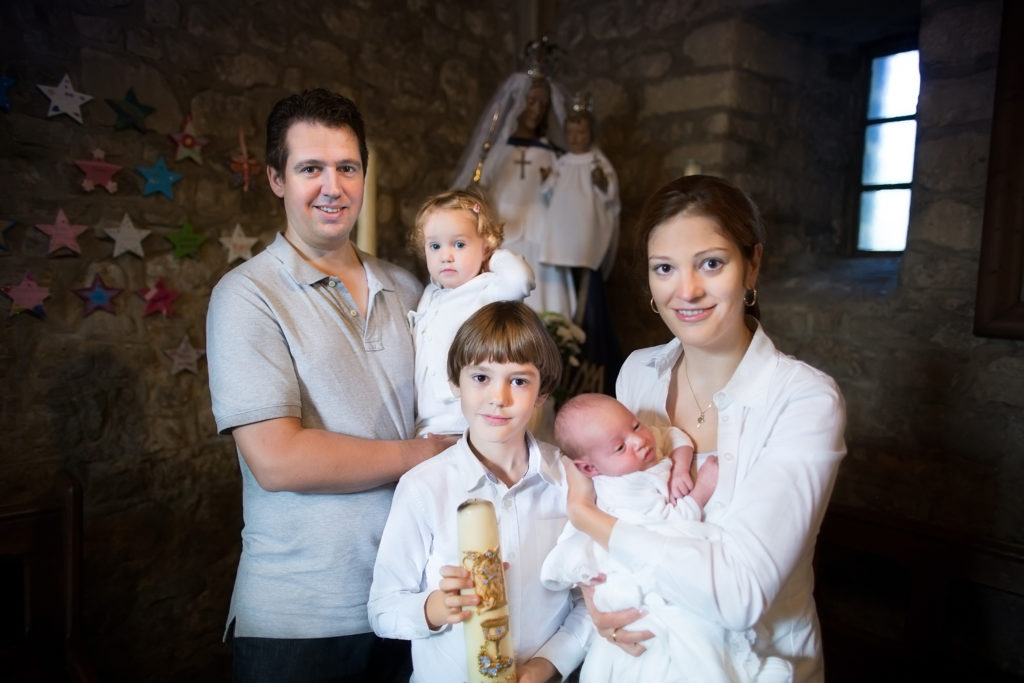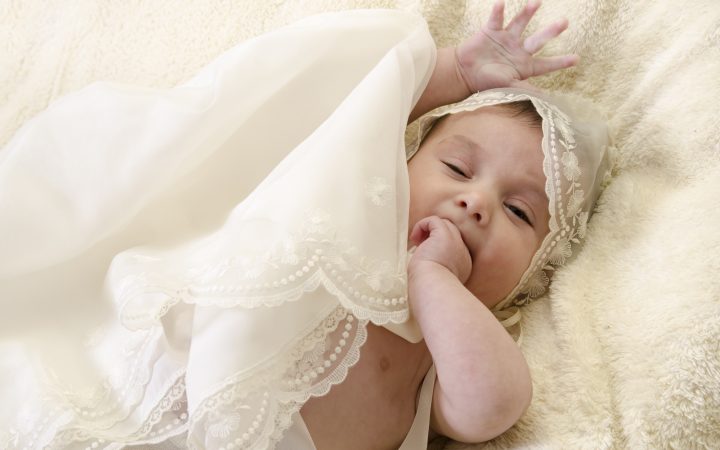Baptism is about belonging

If there is one word which sums up the essence of Baptism it would be ‘belonging’. Through Baptism, we become members of God’s family, a son or daughter of the Father. We belong to God for all eternity. As a consequence, we also belong to the family of God here on earth – our brothers and sisters in Christ.
This belonging is not like joining a local sports club which must be renewed annually. Baptism is more like a marriage – the ceremony is just the beginning of a new life and a new family identity. The ‘membership’ never expires; it endures throughout our entire life and into eternity.
In some ways, when we are baptised, we take on a new family name; Catholic!
And just like all human families, we have our good times and bad. There are some relatives that we like better than others and some that even drive us crazy! But we are still family together and we can celebrate each other’s weddings and births and cry at each other’s funerals. That’s what families do. Even when we annoy or hurt or betray each other, those wounds cannot break our bond of connection; we are still brothers and sisters through our common kinship.
‘Terms and Conditions’
Like all memberships, Baptism involves an agreement between parties. As a parent, you agree to raise your child in faith, teaching them about the life of Jesus and helping them to come to know Jesus personally through prayer and the Sacraments. For our part, the Catholic family, we agree to support you in this task, to nourish the faith of your child through our community gatherings and prayers.
This relationship we have with you and your child is based on love, trust, and is a covenant relationship rather than a legal contract. It will never be imposed and you will never be ‘forced’ to participate. But you will always be welcome, even if you, or your child, chooses to leave our faith community.
Baptism is a Sacrament of Initiation (entry, welcome, membership) within the Catholic community. It is the first of three Sacraments of Initiation which form a unity: Baptism, Confirmation, and Eucharist.
Busted Halo: Sacraments 101
- Why, exactly, do Catholics have the practice of baptising infants?
- What is the purpose of Baptism and who can celebrate the sacrament of Baptism?
- Do the godparents of our child need to be married to each other?
These questions and more are answered in this edition of “Sacraments 101,” a web video series geared for those who’d like an introduction or refresher course on these important, tangible Catholic experiences of God.
God liked it so he put an Indelible Seal on it…
Some years ago, Irish pop singer, Sinead O’Conner declared herself no longer Catholic and wanted to have her Baptism ‘reversed’. This is simply impossible. It would be like trying to change one’s paternity by changing the name on a birth certificate; no matter what is recorded on the certificate, there is a biological relationship between a person and their genetic father that cannot be erased.
When a person is baptised something happens that can never be undone. God adopts that person as his own beloved son or daughter. From that moment on, for all eternity, God and they belong to each other in an eternal covenant.
But God loves us too much to ever impose or force us to be in relationship with him. As the perfect Father, he stands by his covenant commitment but he gives us the freedom to grow deeper in love or to reject him as we choose. And if we choose to leave, he waits patiently, like the father of the Prodigal, attentively, urgently longing for our return to his embrace. (Luke 15: 11-32)
 A child of God
A child of God
When a person is baptised into the Church, he or she enters into a relationship. He or she no longer lives as an individual entity but as a member of the Body of Christ.
The baptismal ceremony marks the beginning of this new life of union and ongoing commitment. A baptised adult says “Yes, I want to be one with you, I want to live a life faithful to the Gospel.” When a child is baptised, the parents and godparents make this commitment on the child’s behalf. At the same time, we, the Christian community, pledge ourselves to be in relationship with that person.

